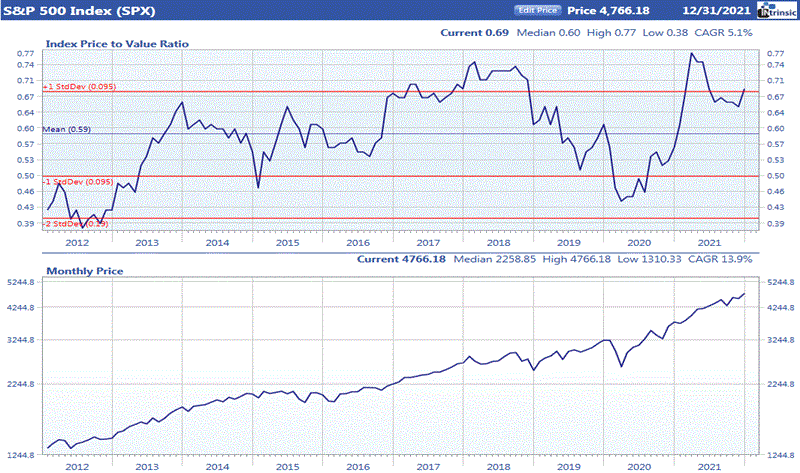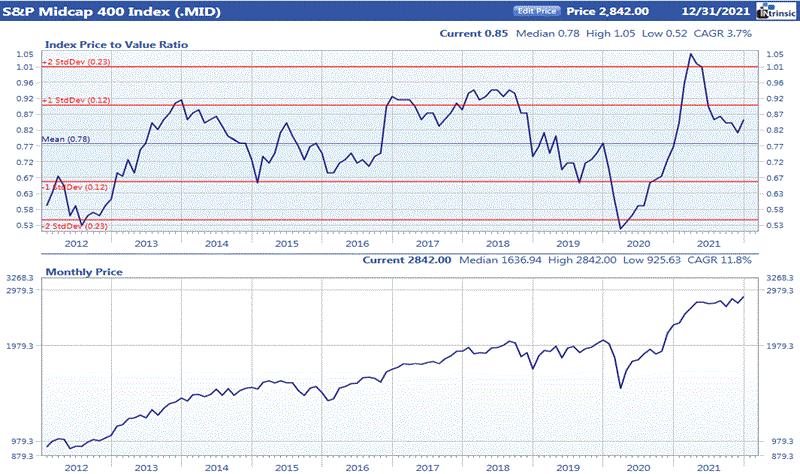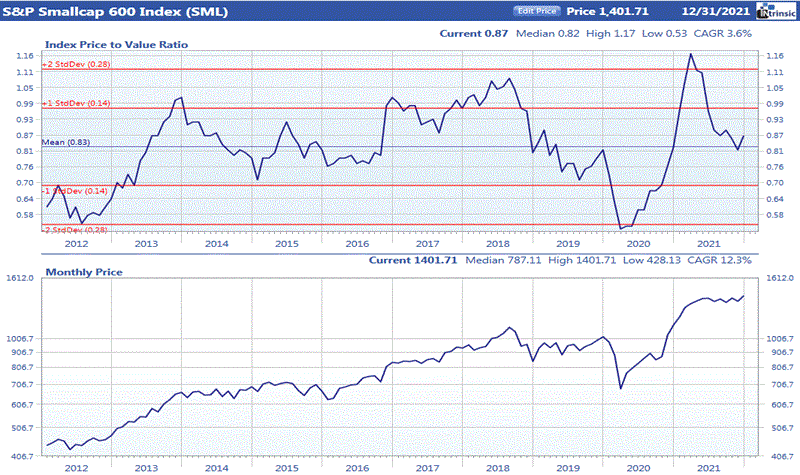Market Briefing
January 2022
Equity indexes advanced in December with the large, mid and small cap segments of the market all enjoying strong gains. Economic news headlines were mostly positive for the month. An exception to this was the payroll report for November. Non-farm payrolls increased by only 210,000 which was well below estimates. Manufacturing and non-manufacturing indexes continued to indicate expansion. Price increases persisted with the inflation rate reaching a new multi-decade high level. Retail sales had a moderate advance in November. Existing and new home sales reports were also both higher. The discovery of the fast-spreading Omicron variant of the Covid virus worried investors. Concerns that new lockdowns would take place and negatively affect businesses drove stock prices lower. The Fed signaled rate increases that would take place in the next year. Investors favored high quality stocks in December. Ford’s quality rating, share buyback, dividend yield and dividend growth rate were among the top performing stock selection factors for the month. Momentum and high growth stocks were among the least liked during November with projected growth rate, short-term sales growth, earning momentum and high beta making up the bottom of the selection factor performance list. Three quarters of the industry groups we cover had positive average price changes for the month. The materials sector had many of the top performing groups. Aluminum, forest products, coal, paper, and copper were among the best performing groups. Auto & truck manufacturing, drugs, and oil well drilling groups were notably among the weakest performers for the month.
Value of the Market



Ford’s price to value ratio (PVA) is computed by dividing the price of a company’s stock by the value derived from a proprietary intrinsic value model. A PVA greater than 1.00 indicates that a company is overpriced while a PVA less than 1.00 implies that a stock is trading below the level justified by its earnings, quality rating, dividends, projected growth rate, and prevailing interest rates. While looking at the PVA for an individual company can give a good indication of its value, the average PVA for the market as a whole can provide insight into current valuation levels.
Source: Ford Equity Research
